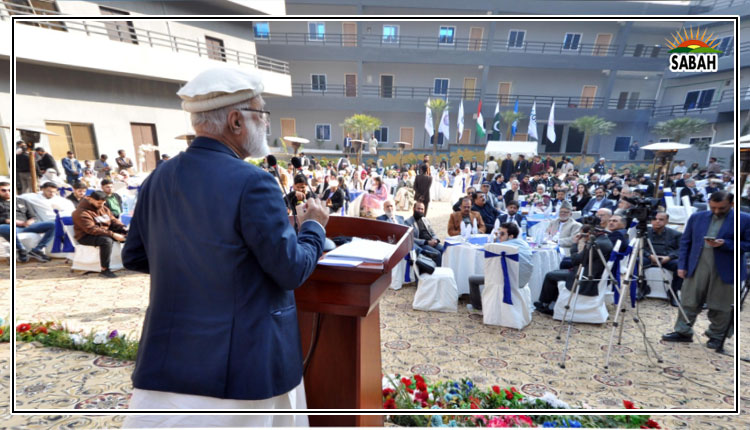Contending with increasingly dangerous heat…Syed Mohammad Ali
Based on average temperatures thus far, 2023 could be the hottest year since reliable temperature records have been maintained. Such high temperatures are extremely dangerous for human health, and have varied associated adverse impacts as well.
While the global media seems to be waking up to the reality of an increasingly warmer planet just now, numerous scientists, development practitioners and even the UN system have been trying to raise an alarm about this growing problem for years. UN agencies have been noted thousands of extreme weather events around the world over the past five decades, which have led to over 2 million deaths and over $4 trillion in economic damages already.
Global warming, combined with the phenomenon of El Nio, is estimated to extend the current heat spell. The United Nations weather agency, the World Meteorological Organization, has predicted that heat will be at record levels across many parts of the world over the next five years. As a result, nearly 20% of the worlds population could become trapped in areas which experience dangerous heat by the end of this century, especially if the global community does not get its act together and contend with climate change more effectively.
The multidimensional impacts of extreme heat are already becoming evident. Higher temperatures are exacerbating water stress, damaging agricultural production and causing major health challenges. Multitudes of vulnerable people die across different countries annually due to heat strokes and other heat induced medical complications.
Medical practitioners have pointed out that average temperatures of 84 degrees or higher can be very dangerous for people when they lack air conditioning or other means to cool off. Some of the countries estimated to be hardest hit by increasing heat are also where the poorest people reside, who lack the resources to make personal adaptions to contend with these increasing temperatures. Jacobabad, for instance, is now one of the hottest places on the planet. The temperatures in other cities like Karachi and Lahore have also begun to reach alarming levels. Yet, daily-wage labourers and many other outdoor workers continue to toil under oppressive heat conditions. Most families, which possess extremely limited means, also suffer long hours of electricity shortages despite searing heat conditions.
Major cities in the global north are well adapted to extremely low winter temperatures. Many rich Middle Eastern cities also cope well despite extremely high summer temperatures. Much of this adaptation is, however, dependent on fossil fuel provided air conditioning. Yet, adapting to climate change by burning fossil fuels is not only expensive, but also a cause of significant emissions.
Most of the worlds cities are quite poorly designed, especially when it comes to contending with heat. Paved roads and other surfaces not only absorb heat, but also amplify it, especially when there is inadequate tree cover and other green spaces. Such is the case not only in many burgeoning metropolises in richer countries but also in bustling megacities in poorer countries like Nigeria, India and Pakistan.
It is imperative for countries on the frontlines of climate change, such as Pakistan, to devise comprehensive heat mitigation strategies. Such strategies must, however, be based on ground realities, and they should not make faulty presuppositions about the ability of people to stay indoors during periods of extreme heat. Poor people cannot be assumed to have access to adequate water or other cooling mechanisms, or even healthcare facilities in case of heat-related health complications. Hence, in addition to investing in innovative design solutions which encourage efficient cooling, and provision of greener and better shaded public spaces is needed.
Ultimately, dealing with the heat emergency will need urgent investments in a range of public services, or else, growing heat, alongside other environmental hazards such as polluted air and water, will take an increasingly severe toll on human health and wellbeing.
Courtesy The Express Tribune












